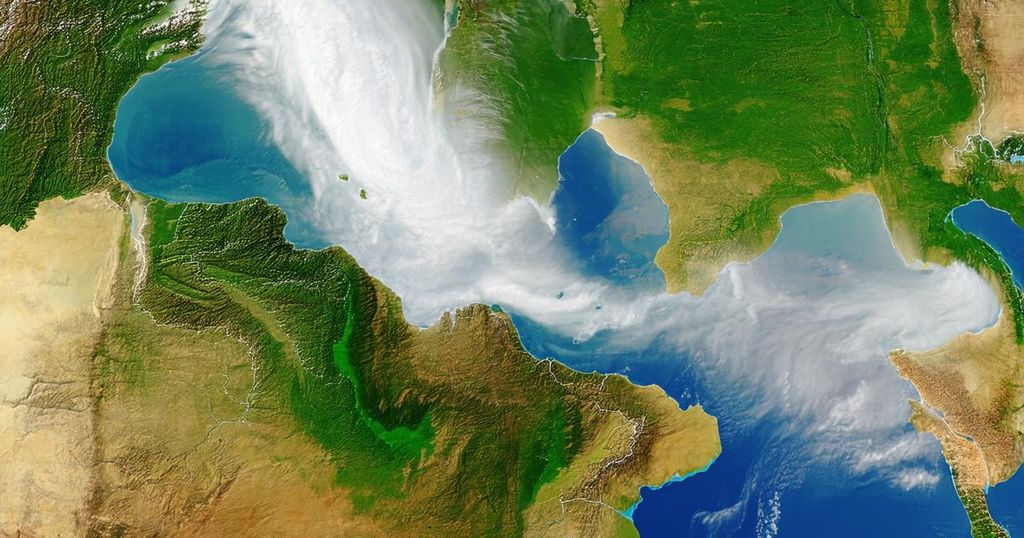Challenges and Strategic Imperatives for Sustainable Development in the Central African Republic

The Central African Republic is trapped in a dangerous cycle of underdevelopment, political instability, and climate vulnerability, which hampers its socio-economic progress. With low GDP per capita, significant poverty rates, and a reliance on climate-sensitive sectors like agriculture, CAR faces compounded challenges exacerbated by historical conflict and governance issues. To break this cycle, a strategic and multifaceted approach is essential, focusing on targeted investments and policy reforms to achieve resilience and sustainable development.
A Comprehensive Examination of the Climate and Development Dynamics in the Central African Republic The Central African Republic (CAR) is ensnared in a challenging cycle that intertwines profound underdevelopment, state fragility, and acute vulnerability to climate change. The analysis presented in the Central African Republic Climate and Development Report (CCDR) elucidates how these interlinked challenges contribute to the nation’s ongoing struggles. Chronic Underdevelopment The economic landscape of CAR is marked by significant underdevelopment, with a notably low GDP per capita of approximately $495 recorded in 2019. This economic stagnation is further reflected in the Human Development Index (HDI), which places CAR among the countries with the lowest standings globally regarding health, education, and living standards. Alarmingly, a child born in CAR today is projected to realize only 29% of their potential productive capacity, despite receiving comprehensive education and healthcare. The overwhelming prevalence of poverty, with around 70% of the population subsisting below the poverty line, underscores the severe economic hardship. Notably, between 2018 and 2021, a staggering 90% of households experienced significant shocks, predominantly attributing these to armed conflict and climate-related events, which exacerbated their socio-economic conditions. State Fragility Politically, the CAR has endured recurrent violence and instability since its independence in 1960, which has eroded governance structures and disrupted social cohesion. This history has resulted in persistent societal tensions that have often devolved into violence, leading to widespread displacement and the fragmentation of communities. Furthermore, urban growth has not progressed in a manner that fosters resilience and inclusivity, failing to offer safe havens or sufficient economic opportunities for its inhabitants. Climate Vulnerability From an environmental perspective, over 80% of CAR’s population relies on agriculture and forestry. These sectors are exceptionally vulnerable to climate variability, as illustrated by the CCDR’s emphasis on the detrimental impacts of altered rainfall patterns and increased occurrences of extreme weather events. Such changes directly threaten water accessibility, food security, and the livelihoods of the citizens. The disruption of agricultural production due to erratic rainfall patterns has compounded food insecurity, adversely impacting the national economy. Additionally, CAR’s extensive river systems and vast forested areas are at risk from climate change effects, including desertification, jeopardizing vital natural resources. Interconnected Challenges These issues do not operate in isolation; rather, they create a complex web that perpetuates economic, social, and environmental stagnation. The interrelation of underdevelopment, political instability, and susceptibility to climate change severely limits CAR’s ability to formulate and execute effective resilience and adaptation strategies. Weaknesses in governance further impede policy implementation and obstruct essential international cooperation, thereby hampering progress. Strategic Action Points It is crucial for CAR to break this destructive cycle to progress toward resilience and sustainable development. This necessitates a wide-ranging strategy that tackles both the underlying causes and the manifestations of the challenges CAR faces through targeted investments, the strengthening of institutions, and innovative policy reforms. Without an integrated approach that considers both sectoral challenges and spatial trends, CAR risks becoming more deeply entrenched in this cycle, with serious ramifications for the well-being of its population and future development prospects.
The Central African Republic has been grappling with profound socio-economic challenges, including an extremely low level of economic development, high levels of poverty, and a fragile political environment characterized by ongoing conflict and instability. It is further exacerbated by climate change, which poses a serious threat to the country’s agricultural-based economy and natural resources. The complexities of these challenges necessitate a thorough understanding of their interconnections and the urgent need for strategic interventions aimed at fostering resilience and sustainable development.
The Central African Republic’s situation underscores the necessity for a multifaceted and integrated approach that addresses the intertwined challenges of underdevelopment, state fragility, and climate vulnerability. Only through targeted investments, institutional reforms, and comprehensive policy frameworks can CAR aspire to break free from the perpetual cycle it currently faces. Failing to do so not only jeopardizes the immediate well-being of its population but also hinders the country’s future developmental prospects.
Original Source: reliefweb.int






